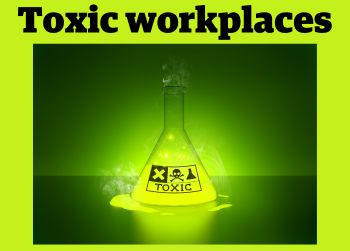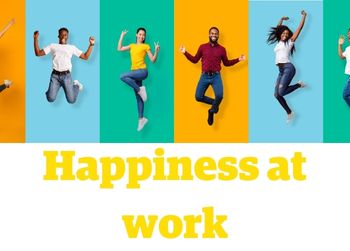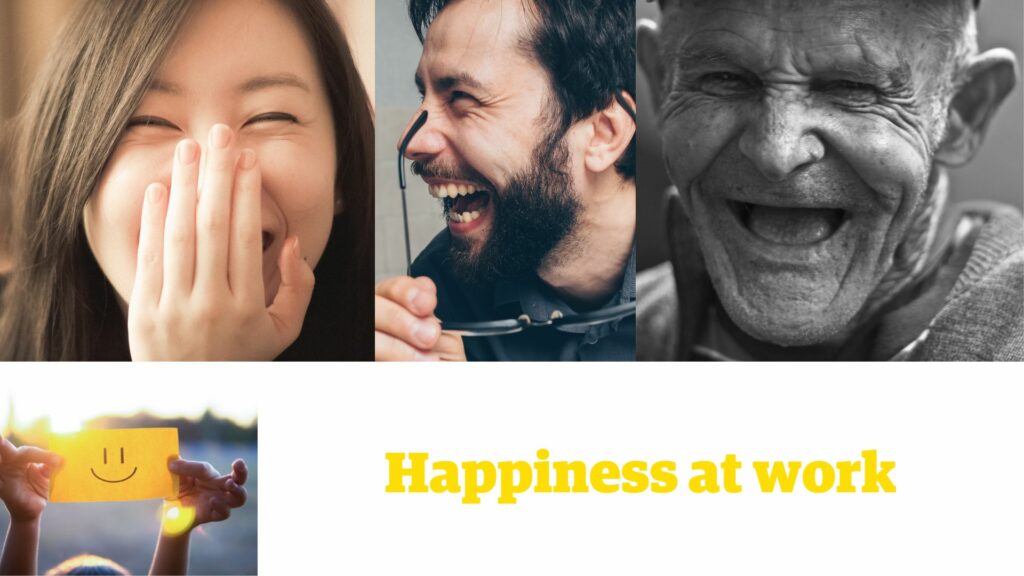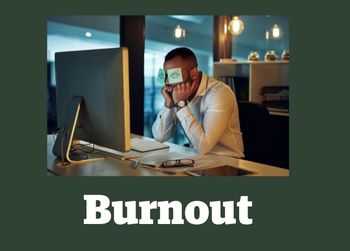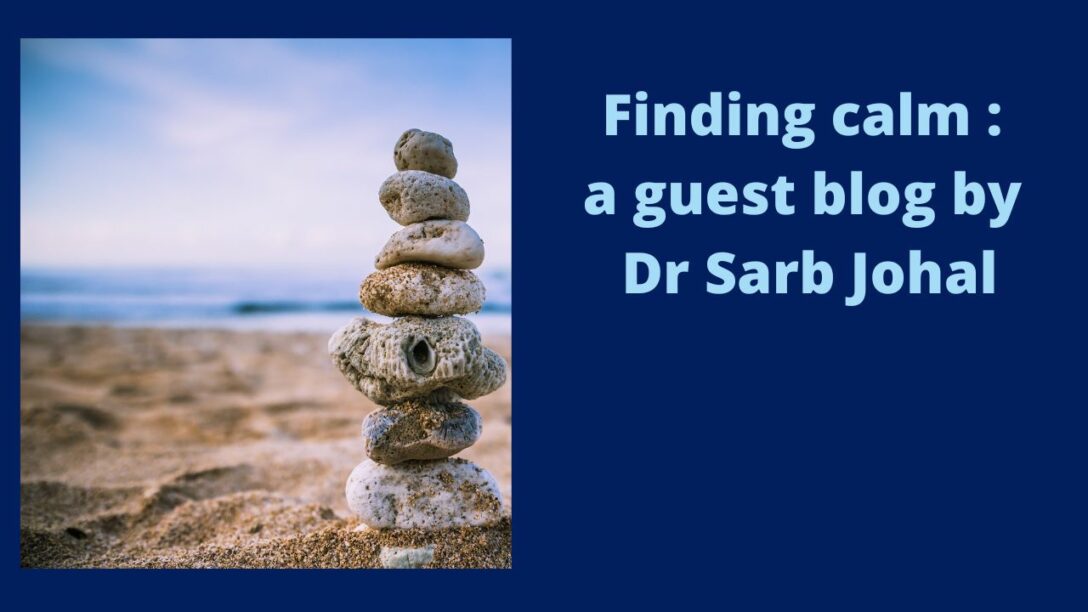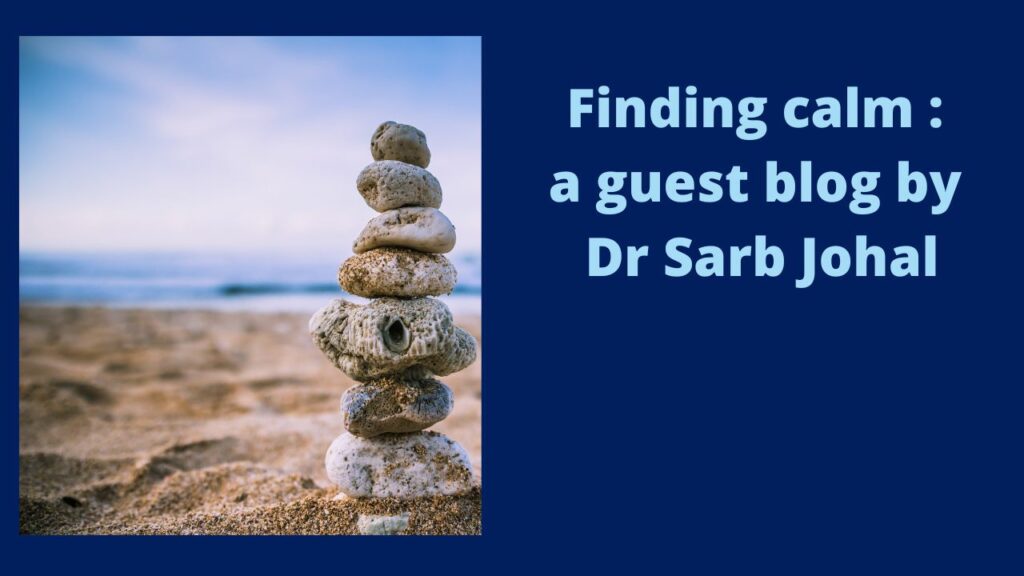
A passing conversation with an acquaintance in the days before Christmas made me realise, once again, how pervasive and damaging a toxic work culture can be.
My acquaintance, in recounting her experiences, said sadly “When I set off for work each morning, I feel heavy.” The pleasure she got from going to work and doing her job well has been sucked out of her life. She finds this in turn impacts on the enjoyment she gets from interests outside of work.
In this case, the presence of one badly behaved and poorly managed individual has also taken its toll on the team. People have left and the team is much reduced. This has increased the workload on those who remain and adds to an already stressful situation.
This article from Fast Company notes: If you are in a toxic workplace, chances are you will feel drained at the end of the day, so setting aside a little time to reset can help you not carry your toxic workplace into your home life. Then, it’s time to update your résumé and know what red flags to avoid at your next job.
The subjects of toxic work cultures and dealing with difficult people, be they employees, co-workers or customers/clients, have been addressed previously in these blogs. If you find yourself in a position where an individual is making you “feel heavy” – whether it’s a work, home or in a social situation, then we’ve listed some some resources that might help build your resilience.
From LinkedIn Learning
(Access to full courses are available with library registration)
Prevent Toxic Work Cultures as a Manager
The importance of a toxic-free workplace
According to recent studies, a toxic work culture is ten times more likely to cause employee attrition than other factors like compensation, job insecurity, and reorganisation. In this course, Francesca Gino teaches you how to identify and address the factors that contribute to toxic cultures and the specific actions you can take as a manager to build and sustain a healthy workplace. Learn how to tell if your workplace is toxic, the steps you can take to build a healthy work culture, and what you can do to ensure the sustainability of the culture you’ve built.
How to Handle Conflict and Toxicity for Happier Workdays
Respond with compassion, not contempt
In this audio-only course, communication expert Sam Horn explains how to adjust your language to deal with difficult people more effectively. Sam identifies three choices you can always make in a conflict and shows you how quickly agreeing, apologizing, and taking action lets you get straight to what’s important. Sam discusses how finding solutions will get you a lot farther than finding fault and points out the advantages of redirecting accusations. She discusses how being a coach, rather than a critic, and adopting a can-do attitude goes a long way toward making things right. Sam encourages you to remember that no one can make you angry without your consent, to focus on what you want to do to keep a level head, and to find strength in numbers and documented evidence. She also highlights the importance of standing up to bullies and knowing when to leave a toxic situation.
From the book collection
Wait, I’m working with who?!? : the essential guide to dealing with difficult coworkers, annoying managers, and other toxic personalities / Economy, Peter
“Who hasn’t had to deal with a jerk at work? Whether it’s a toxic team member who loves nothing better than to suck the life and excitement out of her colleagues or a bad boss who causes his employees to constantly dream of telling him to “Take this job and shove it!” or the difficult co-worker who isn’t happy unless the office is filled with mayhem and drama, we’ve all had to deal with people on the job we would rather not. Based on proven approaches and the latest research and advice of workplace experts, this book will provide readers with detailed and unambiguous advice on how to deal with and neutralize the negative people in their work lives”– Provided by publisher.” (Catalogue)
Jerks at work : toxic coworkers and what to do about them / West, Tessa V.
“For anyone pulling their hair out over an irritating colleague who’s not technically breaking any rules, a hilarious guide to getting difficult people off your back from NYU psychology professor Tessa West. Ever watched a coworker charm the pants off management while showing a competitive, Machiavellian side to the lower ranks? The Kiss-Up/Kick-Down coworker doesn’t hesitate to throw peers under the bus, but their boss is oblivious to their bad behavior. What to do? In Jerks at Work, West draws on a decade of original research to profile classic workplace archetypes, including the Gaslighter, the Bulldozer, the Credit-Stealer, the Neglector, and the Micromanager, and gives advice to anyone who’s ever cried in a bathroom stall at the office. West digs deep into the inner workings of each bad apple, exploring their motivations and insecurities … and offers clever strategies for stopping each type of jerk in their tracks …Jerks at Work is the playbook that you wish you didn’t need but you’ll always turn to–and the answer to your endless “how to deal with a terrible boss” Google searches”– Provided by publisher.(Adapted from Catalogue)
Toxic : a guide to rebuilding respect and tolerance in a hostile workplace / Lewis, Clive
“An incisive insight into the prominence of ‘toxic’ workplaces, detailing the dramatic effect they have upon the workforce and productivity, before exploring applicable and adaptable solutions to this widespread crisis” (Catalogue)
You can’t talk to me that way! : stopping toxic language in the workplace / Bell, Arthur H.
“For anyone who is discouraged, withdrawn and isolated at work due to verbal attacks–or, just as often, has been provoked into shouting matches and verbal confrontations with his or her attacker–this book shows exactly what to say and do to end the humiliation and torment.” (Catalogue)
How to deal with toxic people : clever ways to handle manipulative, difficult, & sensitive people using emotional intelligence / Scott, Bob
“Toxic people are common in the workplace and even within family members. You might be in love with this person or be absolutely attached their personal deeds, but still be suffering from the infliction caused by their toxicity. These people are like virus and may destroy your sense of inspiration, leaving you feeling empty and powerless. It is unfortunate that we have to work with this people, and sometimes the only choice we have is to find subtle ways to deal with their toxicity. This book has brought to light several ways of dealing with difficult, immature and toxic people. Social intelligence strategies revealed in this book will help you to deal with several traits accompanied with social toxicity. You will begin to manage your emotions and responses around toxic behaviors. You will thrive in your workspace and home without the need to be constantly on guard.” (Catalogue) (Ebook Libby format)
Toxic emotions at work : how compassionate managers handle pain and conflict / Frost, Peter J
“No matter where we work or volunteer our time, emotional pain is an unavoidable consequence of doing business. While the sources vary – abusive bosses, combative customers, heavy workloads, impossible deadlines, unexpected tragedies – the result is often the same: We disconnect from work, morale sinks, and performance drops.” “Peter Frost argues that what causes this potentially crippling scenario is not pain itself, but the ways in which organizations respond to pain. When pain is acknowledged and effectively managed, he says, it can be a constructive force for organizational change. But when ignored, pain can poison the workplace – resulting in everything from missed deadlines to an exodus of key staff to a battered bottom line.” “Based on an in-depth study of this pervasive phenomenon, Toxic Emotions at Work explores how organizations and their leaders cause emotional pain, how it affects performance, and what can be done to alleviate pain before it becomes toxic. Frost reveals the “behind-the-scenes” work performed by “toxin handlers” – self-appointed pain managers who help assuage the suffering of colleagues and enable them to refocus on their work. He illuminates the toll this work is taking on toxin handlers’ emotional and physical health, and argues that leaders must recognize and share this critical role if their organizations are to remain productive and vital.”–BOOK JACKET.” (Catalogue)
Toxic people : dealing with dysfunctional relationships / Cantopher, Tim
“Some people are so stressful, they can actually make us ill. Gameplayers, bullies, users and abusers – all pose a risk to our health and welfare if we don’t take action. This book presents the tools we need to deal with the toxic people in our lives who drain our energy. It explains how to make healthy relationship choices, set proper boundaries and recognize the red flags that should alert us to avoid certain people. Whether you are struggling with a narcissistic partner, or dealing with a bullying boss or a sociopathic colleague, there is practical advice that will help you not only to protect your mental wellbeing but also to thrive. You will understand the nature of the toxic workplace – how to avoid it and if necessary survive within it. If you’re surrounded by the takers of this world, read this book and gain the freedom to make your own choices and live your own life.” (Catalogue)
Toxic people : 10 ways of dealing with people who make your life miserable / Glass, Lillian
“”In Toxic People, Dr. Lillian Glass, a nationally known communications skills and self-image expert, explains how these toxic people operate in your life to harm your self-esteem. Using examples from her own practice, she illustrates the problems toxic people cause – physical, emotional, and mental. And she includes informative quizzes to help you identify the toxic people in your own life and the causes of this toxicity. The “Thirty Toxic Types” are included with their characteristics. And because not everyone finds the same people toxic to his or her well-being, Dr. Glass includes a quiz to determine what is toxic to you so you can avoid those types.”–BOOK JACKET.Title Summary field provided by Blackwell North America, Inc. All Rights Reserved” (Catalogue)
Rising above a toxic workplace : taking care of yourself in an unhealthy environment / Chapman, Gary D.
“Offers accounts of workers in emotionally unhealthy work environments and how they coped with the situation or left it behind, with practical advice for readers who find themselves in toxic workplaces.” (Catalogue)
Difficult people made easy : your guide to solving people problems at work / Shakiba, Eleanor
“You’re a competent professional. You excel at the technical side of your work. But so far no-one has taught you how to handle difficult people or toxic team dynamics. That’s where this book comes in. Difficult People Made Easy explains how you need to think and speak when faced with a difficult colleague. Then it reveals specific words and actions you can use.” (Catalogue)
If you need more information please contact the Prosearch team at the library. We can help you find information across a range of perspectives and resources. All enquiries are treated in confidence.


